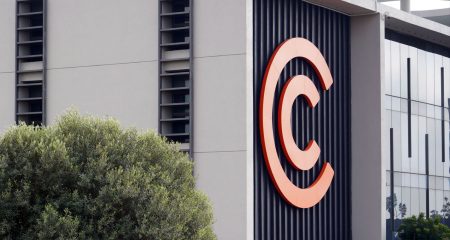 Cell C’s leadership team must feel like it’s on a roller coaster ride it can’t get off. One moment it’s shrieking in delight as its regulator, Icasa, gives it a significant price advantage over its bigger rivals; the next it’s crying out in terror as those benefits are torn away from it.
Cell C’s leadership team must feel like it’s on a roller coaster ride it can’t get off. One moment it’s shrieking in delight as its regulator, Icasa, gives it a significant price advantage over its bigger rivals; the next it’s crying out in terror as those benefits are torn away from it.
Late last Thursday, Icasa announced it intends to slash the very favourable “termination rates” that smaller operators, including Cell C, enjoy now. It wants to cut this “asymmetry” from well over 100% now to 50%, effective from next month, with further reductions to follow from next year.
The plan is contained in draft regulations on call termination rates — a fancy term for the fees operators are allowed to charge each other to carry calls between their networks.
Icasa wants to cut the rates substantially over the next four years, while simultaneously taking an axe to asymmetry, in terms of which smaller players, including Cell C, pay their bigger rivals less than they pay them. Vodacom and MTN argue that it’s grossly unfair that Cell C, which launched commercial services 14 years ago, still enjoys asymmetry.
Icasa is required in terms of a high court order to finalise the new rate regulations by no later than the end of this month. It’s given industry players a short period to comment on the draft proposals.
Icasa won’t push down the rates quite as quickly as it had intended in February, with its earlier, contested regulations. The courts found that Icasa had erred badly and that those regulations were unlawful and invalid. But the court, citing public interest, implemented the new regulations anyway — much to Cell C’s delight — giving Icasa six months to come up with new ones.
Now, under its new proposals, Icasa wants to push down fixed and mobile termination to just 8c/minute by 2017. Five years ago, the rate was at R1,25/minute for peak-time mobile calls. It also intends reducing the level of asymmetry substantially — to 50% on 1 October, to 38% in March 2015, and to 33% and 25% in 2016 and 2017 respectively.
Cell C will qualify for asymmetry for the full term of the new rate regulations. But that hasn’t stopped its CEO, Jose Dos Santos, from giving Icasa a tongue-lashing. He accuses the regulator of making a “dramatic U-turn” and warns that consumers could be harmed.
“The massive proposed reduction in asymmetry completely eliminates any pro-competitive remedy,” he says. “Icasa is now only proposing a marginal cost recovery, which is not, in terms of many international benchmarks and literature, the basis on which asymmetry is determined.”
He says Icasa’s draft, if implemented in final form, will be “catastrophic to the wider telecoms industry and to the South African consumer”. He says Cell C could challenge Icasa in the courts.
But if Icasa has done its job properly this time around, a legal challenge will be difficult.
Cell C should perhaps consider itself fortunate that it will continue to enjoy a level of asymmetry that — in percentage terms at least — is far higher than it was before the February regulations were implemented on 1 April.

It’s certainly true that Cell C has been a disruptor in South Africa’s mobile industry, forcing its bigger rivals to cut their voice tariffs substantially. If the company were to hit the wall, there’s no guarantee those prices won’t go back up. Is the proposed level of asymmetry fair? Is it enough to save Cell C’s bacon? Without access to the operators’ books, it’s hard to know.
But Cell C mustn’t be protected to the extent that it undermines investment by the bigger players in their networks. MTN has been hit hard by the price war — it’s undertaking a second wave of retrenchments — but that is probably more due to its own inefficiencies than regulations.
The huge change in the level of asymmetry Cell C enjoys is unfortunate. Such wild swings make planning and investment decisions difficult. They ultimately reflect a weak regulator.
But it may be time for Cell C to count its blessings and double-down on building a feisty, spirited third player before the asymmetry benefits are withdrawn altogether, as they surely must be.
- Duncan McLeod is editor of TechCentral. Find him on Twitter
- This column was first published in the Sunday Times




